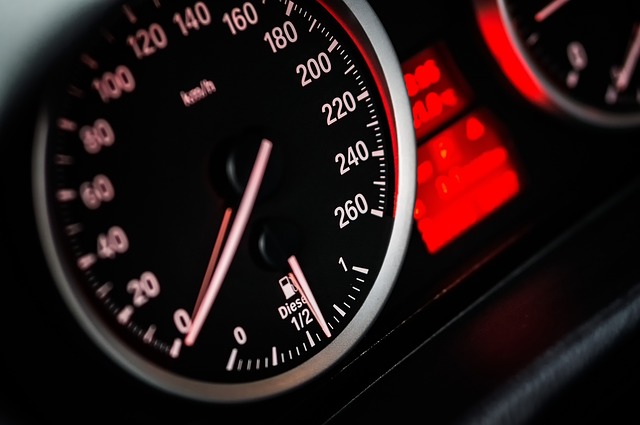When buying a used car, thorough research through comprehensive reports (Carfax, DMV), accident records, ownership history, and maintenance logs is vital to avoid hidden issues like odometer fraud or previous major damage. Verify repairs, cross-reference documents, and consider professional inspections for informed decisions, ensuring a safe and reliable vehicle purchase.
When shopping for a used car, buying what appears to be your dream vehicle could turn into a nightmare if you’re unaware of its past. A simple check of the Vehicle Identification Number (VIN) can reveal a wealth of information, from accident history and ownership changes to potential odometer fraud—a growing concern in the automotive market. This article guides you through the essential steps of uncovering a car’s vehicle history, ensuring you make informed decisions without falling victim to hidden surprises. By the end, you’ll be equipped with the knowledge to navigate the used-car market confidently.
- Uncovering Vehicle History: Why It Matters
- Accident Reports: Red Flags to Look For
- Ownership Records: Trace the Car's Journey
- Odometer Fraud: A Growing Concern
- Utilizing Carfax and DMV Reports
- The Power of a VIN Check
- Making Informed Decisions: Safeguards Against Surprises
Uncovering Vehicle History: Why It Matters

Uncovering the history of a used car is akin to piecing together a puzzle; every detail matters. It’s more than just knowing if it has been in an accident; it involves understanding the car’s journey, its care, and the hands it’s passed through. This information grants you power—the power to make an educated choice. You can identify potential red flags like past repairs, significant mileage discrepancies, or even hidden damage, ensuring you’re not left with a costly surprise.
A comprehensive vehicle history report provides peace of mind, especially with the rise of odometer fraud. It allows you to verify the car’s authenticity and value, making sure you’re not paying for more than what it’s worth. This simple step can save you from financial loss and heartache, ensuring your dream car lives up to its promise without hidden surprises lurking beneath the surface.
Accident Reports: Red Flags to Look For

Accident reports are a significant aspect of a vehicle’s history and can be red flags for potential buyers. When reviewing a car’s past, look out for multiple accidents or severe damage, especially if they result in the vehicle being declared as a total loss. Repairs should be meticulously documented, indicating that all parts were replaced with genuine ones and the work was carried out by certified mechanics. Keep an eye out for discrepancies in the accident reports, such as conflicting dates or descriptions, which might suggest attempted cover-ups. Additionally, check if the vehicle has undergone any structural repairs, as these could indicate underlying issues that may not be immediately apparent.
It’s crucial to verify the authenticity of these reports and cross-reference them with other sources, like insurance records, to ensure they are accurate and up-to-date. A thorough inspection by a trusted mechanic can also help identify any hidden damage or repairs needed, ensuring you’re fully aware of the car’s current condition before making a purchase.
Ownership Records: Trace the Car's Journey

When buying a used car, understanding its ownership records is vital to unearthing its complete history. Each transfer of ownership leaves a digital footprint, offering insights into the vehicle’s past. Through these records, you can trace the car’s journey from its original manufacturer to its current owner. This isn’t just about knowing who previously owned it; it also reveals potential red flags like lease returns, rental car usage, or sales between private individuals and dealerships.
These ownership records provide a transparent view of the car’s lifecycle, which is crucial for identifying any unusual patterns or hidden stories. It helps you gauge if the vehicle has been well-maintained, properly serviced, and genuinely used as intended, ensuring you’re not buying into unforeseen complications or undisclosed issues.
Odometer Fraud: A Growing Concern

Odometer fraud is a growing concern in the used car market, with sophisticated criminals manipulating mileage to increase a vehicle’s value. This deceptive practice often involves tampering with the odometer to show lower mileage than it actually has, making what seems like an excellent deal turn into a costly mistake. Recent reports indicate a surge in such cases, prompting consumers to be more vigilant than ever when purchasing pre-owned vehicles.
With the advent of advanced technology, checking a vehicle’s history has become easier but also more crucial. Services like Carfax and comprehensive DMV reports provide valuable insights, including odometer readings from various points in a car’s life. A simple VIN check can expose any discrepancies, ensuring buyers are not caught off guard by hidden mileage manipulation or other fraudulent activities.
Utilizing Carfax and DMV Reports

When it comes to buying a used car, two reliable sources for uncovering its history are Carfax and DMV reports. Carfax is a popular service that provides detailed vehicle history reports, including accident records, ownership history, and maintenance records. This comprehensive report gives buyers peace of mind by revealing any potential issues or hidden pasts. On the other hand, DMV (Department of Motor Vehicles) reports offer official documentation regarding a vehicle’s title, registration, and any reported accidents or damage.
These reports serve as powerful tools for protecting buyers from unforeseen problems. With just a few clicks or a simple VIN (Vehicle Identification Number) check, you can access this information, ensuring that the car you’re considering is free from hidden surprises. This meticulous approach to research empowers car buyers, allowing them to make confident decisions and avoid potential pitfalls associated with purchasing a used vehicle.
The Power of a VIN Check

Making Informed Decisions: Safeguards Against Surprises

When buying a used car, every detail matters. Making informed decisions goes beyond checking the mileage or inspecting the exterior. It involves delving into the vehicle’s past to ensure it aligns with your expectations and safety standards. A salvage title, for instance, is a red flag that signals previous significant damage, which could impact performance and safety features.
Relying on trusted sources like Carfax reports or DMV records provides invaluable insights into a car’s history. These services offer a comprehensive view of accidents, ownership changes, maintenance records, and even odometer fraud—a growing concern in the used car market. Taking this extra step can prevent you from unknowingly purchasing a vehicle with hidden issues, ensuring peace of mind and a sound investment.
When buying a used car, a comprehensive vehicle history report is your best defense against unexpected issues. By scrutinizing accident reports, ownership records, and being aware of odometer fraud, you can make informed decisions. Services like Carfax and DMV reports provide valuable insights, while a simple VIN check acts as a final safeguard. Remember, understanding the past of your potential purchase is key to avoiding hidden surprises and ensuring a smart, safe investment.



